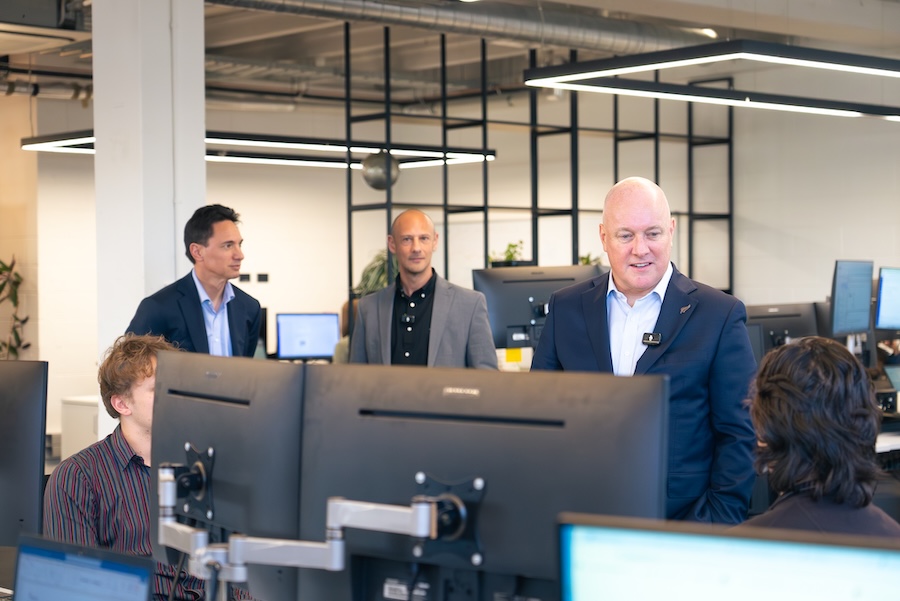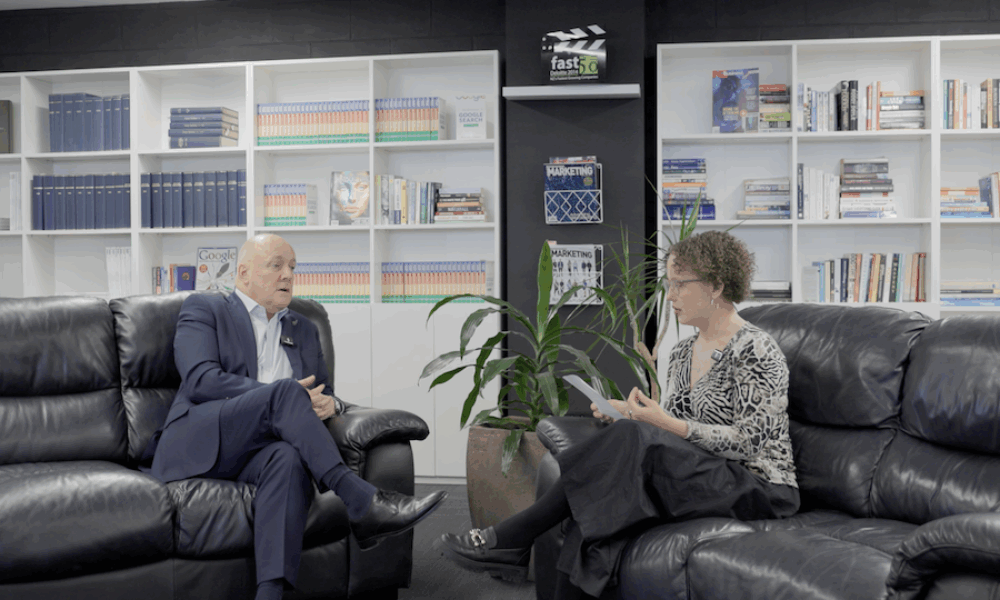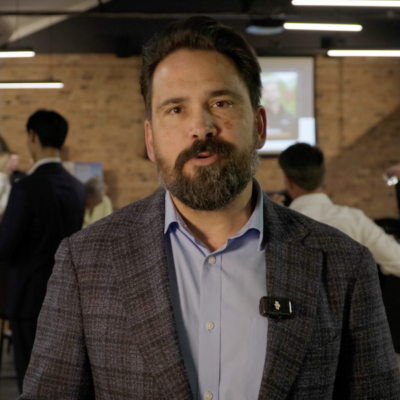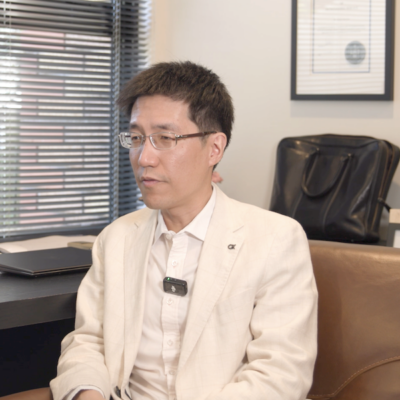When Prime Minister Christopher Luxon visited the NZBusiness office in Northcote, Auckland recently, he took time to share his thoughts on technology, growth, and the critical role of SMEs in New Zealand’s economic recovery.
As he has spent much of his time doing as Prime Minister, Christopher Luxon spoke about his government’s growth priorities and how SMEs can seize opportunities despite current challenges. “I appreciate everything everyone’s doing in the SME sector and the export sector, because that’s how New Zealand gets richer. SMEs are the lifeblood of the country. We have a lot of work to do, but we’re a great country and we’ll get it done.”
Uneven recovery
The PM didn’t shy away from acknowledging Auckland’s slower rebound compared to other regions. “What we inherited was the biggest recession since the early 1990s. New Zealand had a large hangover from Covid. And the way the economy was managed, we were the second most stimulatory government in the world. That really made the cost of living worse for New Zealanders, and it also affected our financial debt track going forward.”
While rural communities and primary industries are experiencing growth, urban SMEs face tougher conditions. “If you’re in the cities of Auckland and Wellington in particular, you’re a small business dealing with manufacturing or construction, it’s been tough. But the good news is that I think there is a lot of positives happening here in Auckland.”
He points to government initiatives designed to stimulate growth. “We’ve introduced something called Investment Boost, which is the 20 percent asset write-off. And on the construction piece, we’ve got Fast Track up and running and getting projects happening quicker. We’re kicking off $7 billion worth of infrastructure projects before Christmas, many of them here in Auckland, and that’s creating new jobs and opportunities for small businesses.”
Yet, for many SMEs in spite of all the investment talk, the barriers of bureaucracy remain frustrating. Luxon admitted reform is needed. He says that tax breaks, faster consents, and less paperwork are all needed. We’ve turned the country into a country of bureaucrats. “The Resource Management Act is a real constraint for New Zealand. It’s taking too long, costing too much. We’re way too slow getting stuff built. We need more infrastructure, less red tape, more trade, more investment. Getting the planning laws optimised so we’ve got fewer layers of bureaucracy is really, really important.”
Resilience and retooling
The Prime Minister drew on his business background to encourage SME owners to use the downturn as a chance to sharpen operations. “When the tide goes out, big rocks get exposed that you don’t see when the tide’s in. That’s the chance for you to retool your business very aggressively, rather than believing the world is going to come right and go back to how it always was. Business is always evolving. The consumer’s always evolving. If you’re prepared to do the work on improving efficiency, productivity, adoption of AI and technology to reorganise your business, you want to use the challenging times to do exactly that.”
When asked about AI as a business tool, the Prime Minister says that he has personally been experimenting with the tech. “I’ve started using ChatGPT usually for research reasons, like if I’m interested in a topic or a piece of history and I want a quick distillation of something. More for personal use,” he said.
But the Prime Minister sees much bigger potential for New Zealand when it comes to AI. “We [the Government] really think AI is a massive opportunity. One of the real challenges we have is that we’re all working really hard in this country, but we haven’t been able to lift our standard of living over the last 30 years. A big contributing factor is we’re not embracing enough technology innovation.”
AI, he believes, will be central to lifting productivity. “That’s ultimately how government will get much more efficient, and it’s how our businesses will get more efficient as well. I’ve created a Minister for Digitising Government [Judith Collins] with a view that we will apply AI very, very strongly. Government [ministeries] should be thinking of themselves as large service organisations that have things called customers – the public of New Zealand. And the way we get that change in mindset will be the adoption of AI in particular.”
Still, the PM acknowledged risks. “We need to be careful with privacy. We need global frameworks around protecting ethical AI and other things we need to be considering very deeply. But actually, the real size of the prize is on the positive side – how transformative it can be for New Zealand as a country and for businesses.”

Untapped potential
Asked about the biggest opportunity for SMEs, the PM returned to the global stage. “I think there’s a real opportunity for adoption of technology to get yourself to a much more efficient place – to drive more margin, create more opportunity, and more profitability. The second thing is exports.
You’re sitting bang smack in the middle of the Indo-Pacific region. As countries like India or China get wealthier – with almost half a billion people each in the middle class – they want higher quality products and services from New Zealand exporters.
If we can double the value of our exports, which we can, we’ve got huge opportunities internationally.”
Despite global uncertainty, the PM remains optimistic. “We’ve got very good rule of law here in New Zealand and strong social and democratic institutions. We should have abundant energy sources, and we’ve got really talented people. All of that just says New Zealand should be able to do really, really well despite the choppiness we’re experiencing in the global economy right now. We can still navigate our way through it.”
“Let’s get it going”
Luxon’s message to SMEs was one of urgency and optimism. “Look, just know I appreciate everything everyone’s doing in the SME sector and the export sector because that’s how New Zealand gets richer. SMEs are the lifeblood of the country. We have a lot of work to do, but we’re a great country and we’ll get it done. Let’s get it going.”






